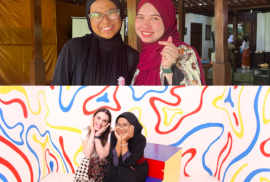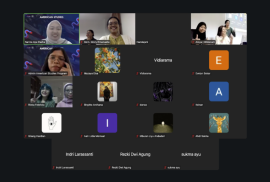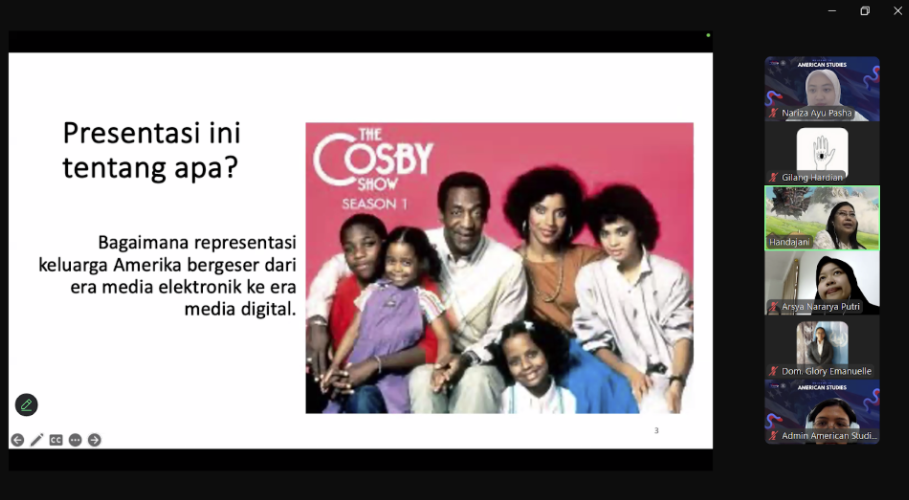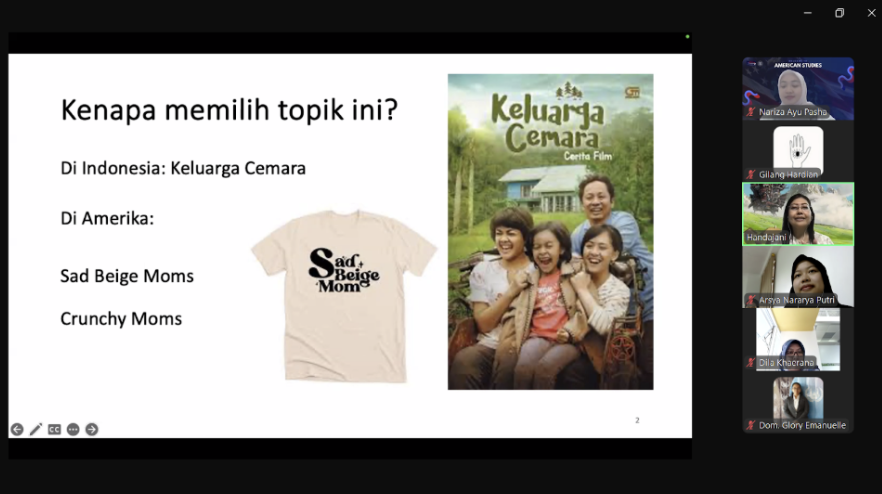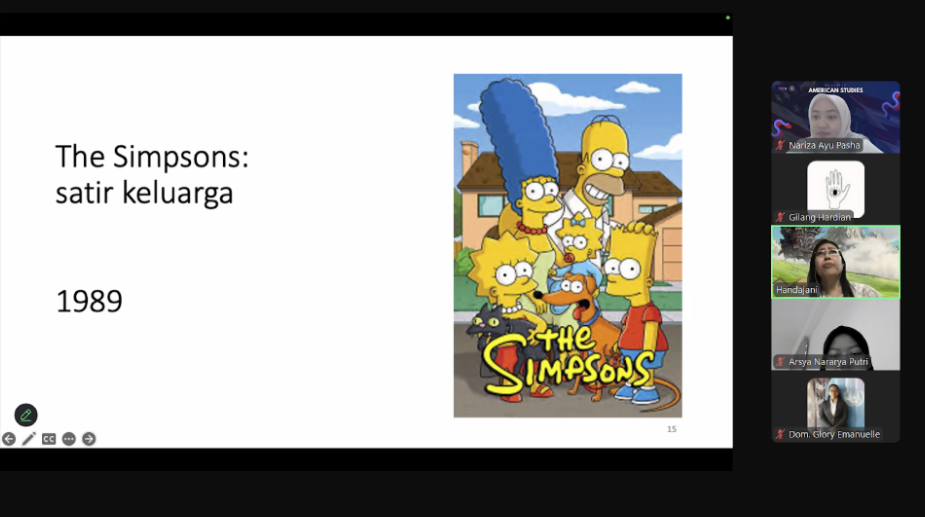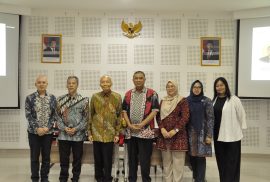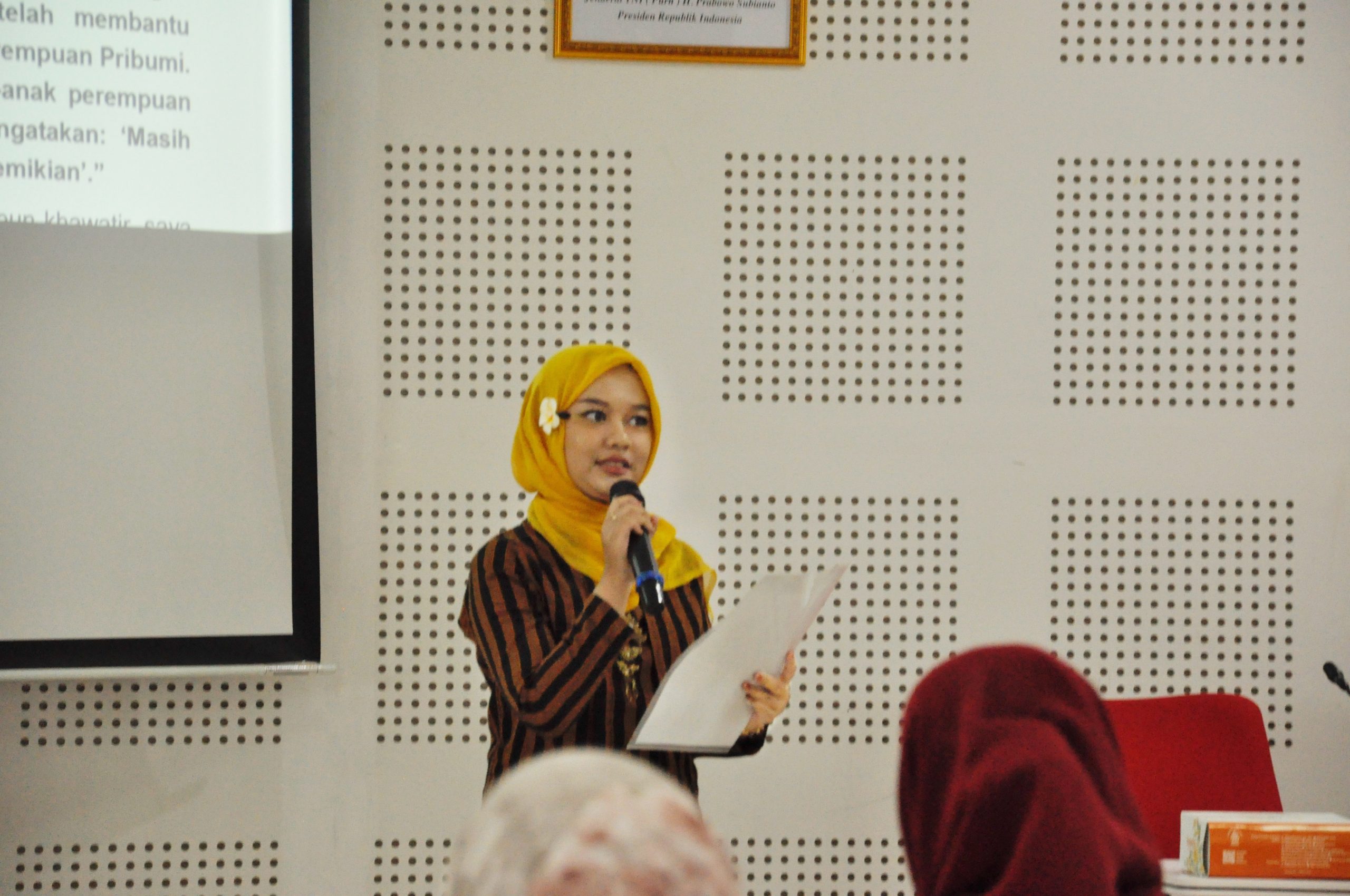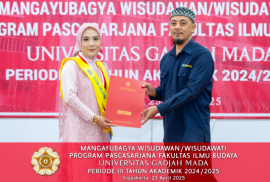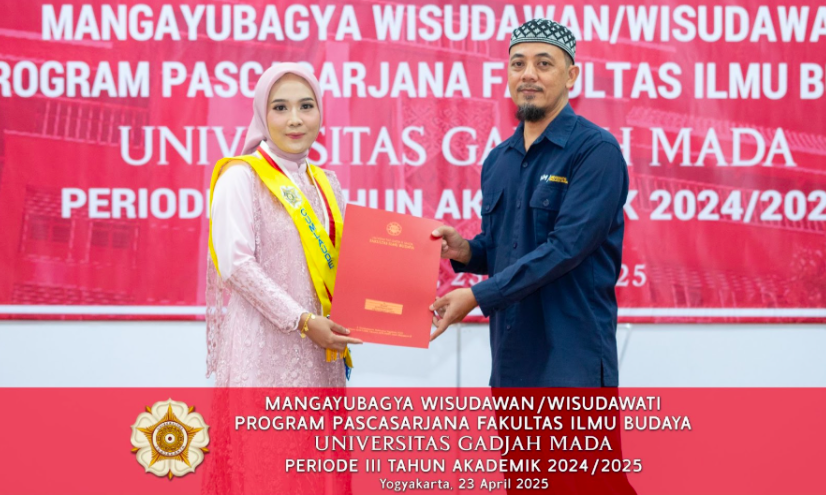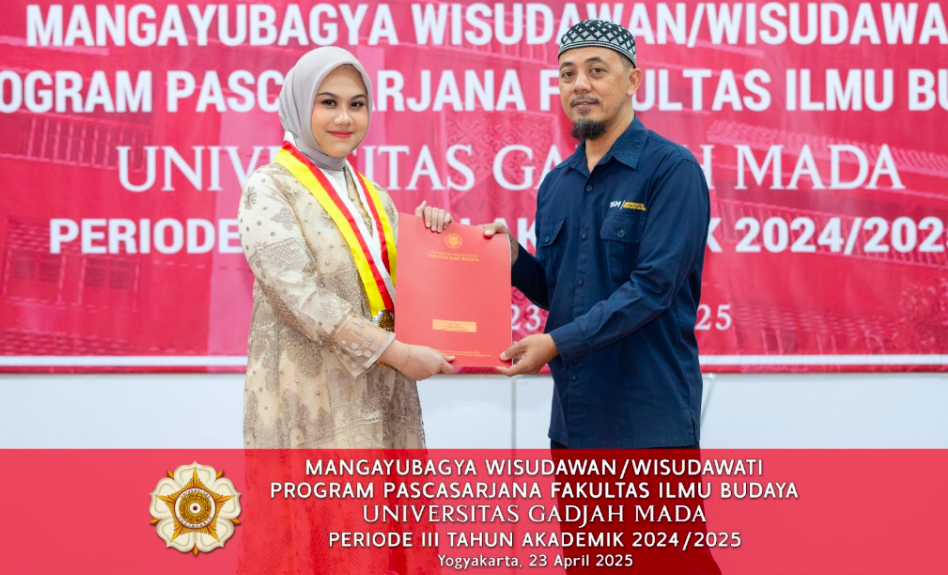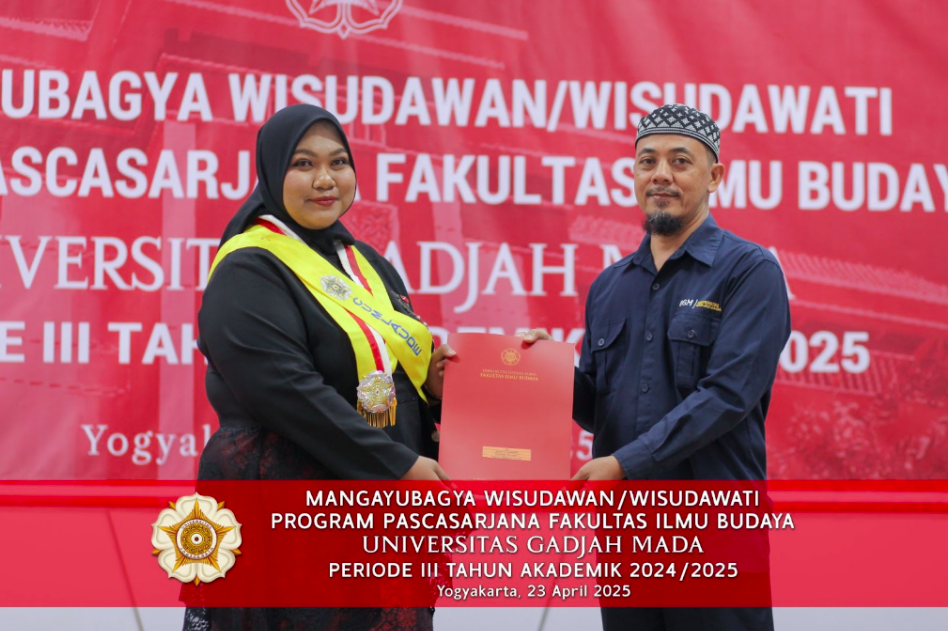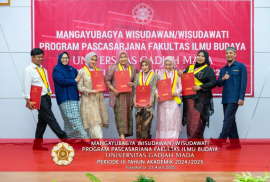Yogyakarta, 27 May 2025 – Behind the classroom doors of the Indonesian for Foreign Speakers (INCULS) Program lies a space for dialogue that goes far beyond language learning. It is a meeting point of nations, a space where values are exchanged, and most importantly, where tolerance and understanding grow. One of the individuals who plays a vital role in this process is Nabila Intan Sari, fondly known as Natan. A student of English Literature from the 2021 cohort, she has been actively involved as a tutor at INCULS since 2023. Her experience has profoundly shaped the way she views the world, Indonesia, and herself.
Through INCULS, Natan has participated in various Indonesian language teaching programs for foreign speakers, such as Darmasiswa, Developing Countries Partnership (KNB), Gadjah Mada International Fellowship (GMIF), and collaborations with Monash University and the University of New South Wales. For her, each program comes with its own unique stories and challenges. Yet, a common thread runs through them all: the critical role of language as a unifying tool and a window into cultural meaning.
Among all her experiences, Natan finds the KNB program the most memorable. Unlike other programs, KNB offers a longer teaching duration, allowing for deeper friendships to form between tutors and international students. Natan wasn’t just a teacher—she became a listener, a discussion partner, and even a close friend. These relationships did not end with the program, as communication continues to this day. This, to her, is a true form of education rooted in humanity.
“To me, being a tutor is not just about delivering theory. It’s about showing up as a human being who can make others feel seen and valued,” she shared.
Natan’s teaching methods reflect a humanistic and dialogical approach. She does not dive straight into grammar or sentence structure. Instead, the first two sessions are spent discussing everyday topics such as daily life, campus experiences, cultural differences, and unique habits from each student’s home country. These conversations help build emotional connections and create a safe, relaxed learning atmosphere. Slang, light humor, and current topics often emerge during tutorials, making the learning experience feel like casual, meaningful conversations.
Another thing Natan finds fascinating is the passion for learning shown by students in long-term programs like KNB and Darmasiswa. They arrive with high motivation, great curiosity, and a respectful attitude. Of course, teaching has its challenges. Natan often encounters difficulties with accents and pronunciation, particularly with students from India and Pakistan. Language barriers are inevitable, but she refuses to give up. Instead, she sees them as opportunities to build more creative and interactive learning approaches.
One of the strategies she implements is taking learning outside the classroom. She brings students to places like the Sonobudoyo Museum to explore Javanese cultural history or hikes with them in the Kali Talang area to witness Indonesia’s natural beauty firsthand. During these activities, conversations naturally flow, touching on various topics including social issues like patriarchy and power dynamics in culture. It is through such moments that social and humanitarian values are woven into language education.
“In doing so, I feel that Bahasa Indonesia becomes more than just a communication tool—it becomes a window into the way our people live and think,” she said.
For Natan, being a tutor has changed many aspects of her life. She has become more aware of diversity and has learned not to judge others from a single perspective. She has grown to respect others more and to appreciate her own culture deeply. Her sense of nationalism has also grown stronger after witnessing how enthusiastically foreigners study Indonesian language and culture. That pride arises not from obligation, but from seeing Indonesia through the eyes of others.
“Sometimes, we only truly understand our own country when we explain it to others. And in doing so, we rediscover the meaning of Indonesia,” she reflected.
To Natan, INCULS is not just a language learning space. It is a small stage for cultural diplomacy, where Indonesia is introduced in the most human way—through person-to-person interaction. She believes that every tutor becomes a lens through which others see Indonesia. Therefore, she emphasizes the importance of maintaining ethics, attitude, and the quality of education. She also hopes to see improved learning facilities, including the need for a new building to better support the teaching-learning process.
In addition, she hopes international programs such as those with Monash University can be expanded and extended in duration. After all, one hour is not enough to truly explore the deeper layers of Indonesian culture. Consistent time and interaction are needed for meaningful intercultural relationships to take root.
To fellow tutors, Natan shares a simple yet powerful message: stay motivated. She encourages tutors to go beyond just teaching the language—to help students truly experience life in Indonesia. Only through firsthand experience can students grasp the essence of Indonesia, not just through words, but through the kindness, warmth, and diversity they encounter.
Through her journey, Natan has shown that teaching language can be a powerful pathway to fostering tolerance, respect, and love for the homeland. In the hands of tutors like her, language becomes a bridge—not just between nations, but between hearts—connecting the present with a more inclusive and understanding future.
[Public Relation of INCULS, Thareeq Arkan Falakh]

